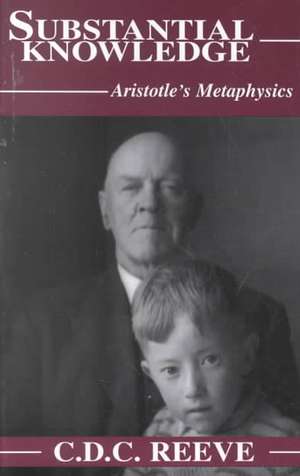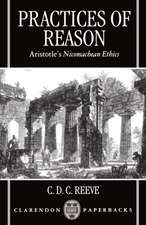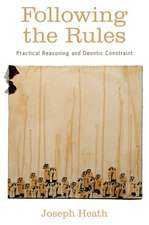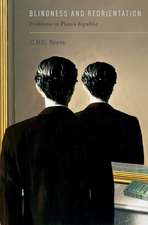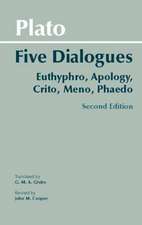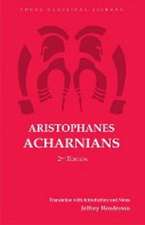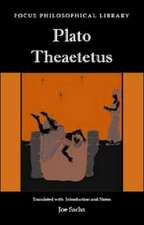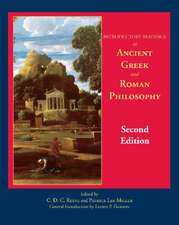Substantial Knowledge: Aristotle's Metaphysics
Autor C. D. C. Reeveen Limba Engleză Paperback – noi 2002
| Toate formatele și edițiile | Preț | Express |
|---|---|---|
| Paperback (1) | 135.22 lei 3-5 săpt. | +27.02 lei 7-13 zile |
| Hackett Publishing Company – noi 2002 | 135.22 lei 3-5 săpt. | +27.02 lei 7-13 zile |
| Hardback (1) | 176.43 lei 3-5 săpt. | |
| Hackett Publishing Company – mar 2000 | 176.43 lei 3-5 săpt. |
Preț: 135.22 lei
Preț vechi: 145.76 lei
-7% Nou
Puncte Express: 203
Preț estimativ în valută:
25.88€ • 27.05$ • 21.87£
25.88€ • 27.05$ • 21.87£
Carte disponibilă
Livrare economică 13-27 februarie
Livrare express 30 ianuarie-05 februarie pentru 37.01 lei
Preluare comenzi: 021 569.72.76
Specificații
ISBN-13: 9780872205147
ISBN-10: 0872205142
Pagini: 341
Dimensiuni: 6 x 228 x 18 mm
Greutate: 0.4 kg
Editura: Hackett Publishing Company
Colecția Hackett Publishing Company, Inc (US)
ISBN-10: 0872205142
Pagini: 341
Dimensiuni: 6 x 228 x 18 mm
Greutate: 0.4 kg
Editura: Hackett Publishing Company
Colecția Hackett Publishing Company, Inc (US)
Recenzii
C.D.C. Reeve has made a remarkable contribution to the study of Aristotle's metaphysics, not least because his interpretation restores Aristotle's theology to its central place. His book will be important reading not only for scholars engaged in debate about Aristotle's text, but also for the rest of us, because it is both an interpretation of Aristotle and a significant metaphysical inquiry in its own right. --Alasdair MacIntyre, Duke University
A splendid book! Reeve's Substantial Knowledge contains a remarkably rich and detailed exploration of the primacy, both metaphysical and epistemological, of substantial being in Aristotle's theoretical philosophy. It not only provides an accessible introduction to the key texts and problems, but also challenges contemporary scholarship in its highly original exposition and defense of a holistic interpretation of the aims and content of Aristotle's metaphysical theorizing. --Alan Code, University of California, Berkeley
Even scholars who have worked hard over decades on metaphysics in Aristotle will find much refreshment as well as much to learn in studying this book. This is not an ordinary working through, textbook fashion, of the established topics and the established texts, aimed at giving a thorough but traditionally conceived examination of Aristotle's metaphysics of substance. It is a completely fresh, independently motivated philosophical reading of lots and lots of Aristotelian texts, assembled in order to buttress an ongoing interpretative project, and quoted in full and then analyzed step by step in the surrounding discussion. I am sure that any reader will find the book a spirited and instructive effort to deal intelligibly with these often quite daunting materials. --John Cooper, Princeton University
A splendid book! Reeve's Substantial Knowledge contains a remarkably rich and detailed exploration of the primacy, both metaphysical and epistemological, of substantial being in Aristotle's theoretical philosophy. It not only provides an accessible introduction to the key texts and problems, but also challenges contemporary scholarship in its highly original exposition and defense of a holistic interpretation of the aims and content of Aristotle's metaphysical theorizing. --Alan Code, University of California, Berkeley
Even scholars who have worked hard over decades on metaphysics in Aristotle will find much refreshment as well as much to learn in studying this book. This is not an ordinary working through, textbook fashion, of the established topics and the established texts, aimed at giving a thorough but traditionally conceived examination of Aristotle's metaphysics of substance. It is a completely fresh, independently motivated philosophical reading of lots and lots of Aristotelian texts, assembled in order to buttress an ongoing interpretative project, and quoted in full and then analyzed step by step in the surrounding discussion. I am sure that any reader will find the book a spirited and instructive effort to deal intelligibly with these often quite daunting materials. --John Cooper, Princeton University
